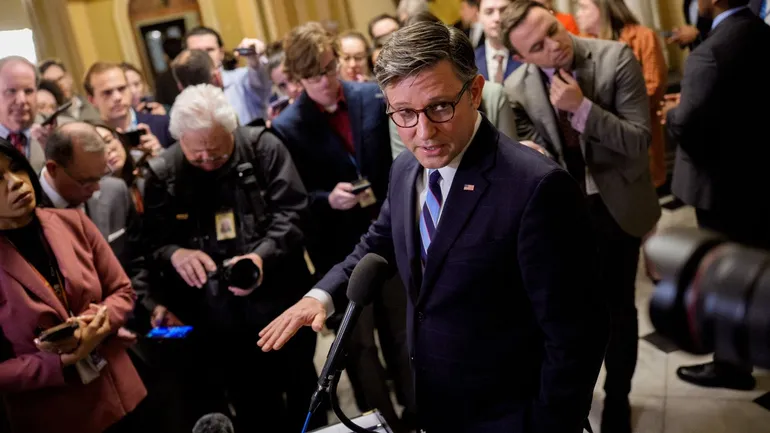The House passed a budget resolution Thursday that could set the stage for significant cuts to the safety-net insurance program Medicaid.
The chamber voted 216 to 214 to approve the budget blueprint, which the Senate advanced over the weekend. Two Republicans, Reps. Thomas Massie, R-Ky., and Victoria Spartz, R-Ind., voted against the measure. Now Republicans in both chambers will have to work together to hash out legislation that follows the basic spending plan in a process known as budget reconciliation.
The budget resolution is a victory for Republican leaders, who had to work until the 11th hour to convince some conservative lawmakers to approve the measure. Fiscal hawks within the party resisted supporting the blueprint, citing concerns that it doesn’t include sufficient spending reductions to balance out tax cuts.
Overall, the resolution calls for $4 billion in budget cuts, far less than the at least $1.5 trillion initially proposed by the House in February. It doesn’t include specific details on which programs will be affected.
Cuts to Medicaid, which alongside the Children’s Health Insurance Program provides coverage to nearly 80 million people, could be on the table.
Early this year, the House’s budget blueprint called for the Energy and Commerce Committee, which oversees Medicare and Medicaid, to find $880 billion in spending reductions. That target is likely impossible to hit without cutting major healthcare programs under the committee’s purview, according to the Congressional Budget Office.
The Senate version of the blueprint retained the $880 billion reduction, but it also allows the Senate Committee on Finance, which also has jurisdiction over Medicare and Medicaid as well as tax and other fiscal policy, to add up to $1.5 trillion to the federal deficit.
Cuts to the safety-net program could be politically challenging, given their unpopularity with voters — even among those that voted for President Donald Trump. Some Republican senators have also raised concerns that reducing funding for Medicaid could hurt their constituents.
Hospitals could take a hit too, as many rely on reimbursement from the safety-net program. Providers are already facing headwinds from tariffs on medical supplies, while another coverage challenge looms at the end of the year when more generous financial assistance for people who buy health plans on the Affordable Care Act exchanges is set to lapse.
“Americans deserve and expect reliable, affordable health coverage. With the discussions of Medicaid cuts and the expiration of the individual marketplace’s enhanced tax credits looming, Americans are rightly concerned,” Chip Kahn, president and CEO of the Federation of American Hospitals, said in a Thursday statement. “Lawmakers should hear their constituents’ concerns, leave Medicaid alone, and extend the enhanced tax credits to assure Americans’ coverage.”


